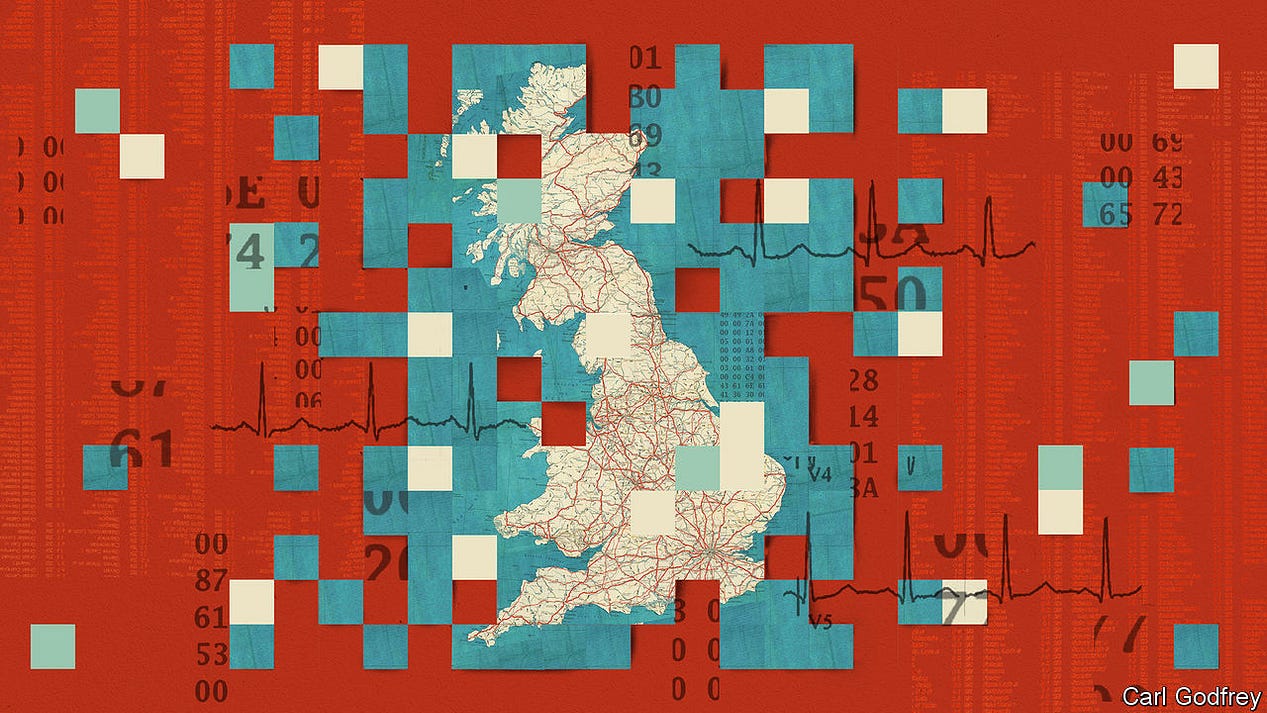Health Transformation Institute (HTI)
Joaquim Cardoso MSc
February 10, 2024
What is the Message:
Britain’s publicly funded health-care system, the National Health Service (NHS), holds immense potential for leveraging artificial intelligence (AI) to improve healthcare outcomes.
However, there are significant challenges hindering the integration of AI into the NHS, primarily related to data cleanliness, comparability, and consent.
To unlock the full potential of AI in healthcare, the NHS must prioritize addressing these challenges promptly.

Examples and Statistics:
- Despite holding vast amounts of health data, the NHS faces difficulties in making its data AI-ready due to issues with data organization and cleanliness. For instance, while the NHS excelled in conducting studies like the RECOVERY trial during the COVID-19 pandemic, the data format may not be optimal for training AI models.
- The success of AI projects within the NHS often relies on the dedication of individual doctors rather than systematic support from the healthcare system.
- The NHS’s restrictive licensing terms for intellectual property can deter AI developers, limiting innovation in healthcare technology.
- Disparate data storage methods and lack of standardization across different NHS facilities hamper the comparability of health data, hindering large-scale AI applications.
- The importance of consent is highlighted, as individuals should have the option to opt out of sharing their data for AI purposes, even though collective data sharing can benefit society as a whole.
Conclusions and Recommendations:
Cleanliness:
The NHS should prioritize hosting its rich health data in cloud-computing environments and incentivize hospitals and clinics to prepare datasets for AI use. Collaboration with universities and easier access to datasets for researchers can facilitate this process.
Comparability:
Efforts should be made to standardize data collection methods across different NHS facilities, ensuring consistency and facilitating the creation of large datasets for AI applications. The upcoming initiative to link disparate datasets is a step in the right direction.
Consent:
While advocating for collective data sharing, politicians and healthcare authorities must respect individuals’ rights to opt out and ensure transparency regarding data anonymization and usage.
In conclusion, the NHS must act swiftly to embrace AI in healthcare to realize benefits such as early disease diagnosis and improved efficiency.
In conclusion, the NHS must act swiftly to embrace AI in healthcare to realize benefits such as early disease diagnosis and improved efficiency.
Failure to do so risks losing its competitive edge to rapidly digitizing health systems in other countries and missing out on opportunities for economic growth through AI technology exports.
By addressing data challenges and fostering a conducive environment for AI innovation, the NHS can maintain its position as a global leader in healthcare while driving positive societal and economic impact.
Source: Adapted from “How to make Britain’s health service AI-ready”, October 19, 2023.












